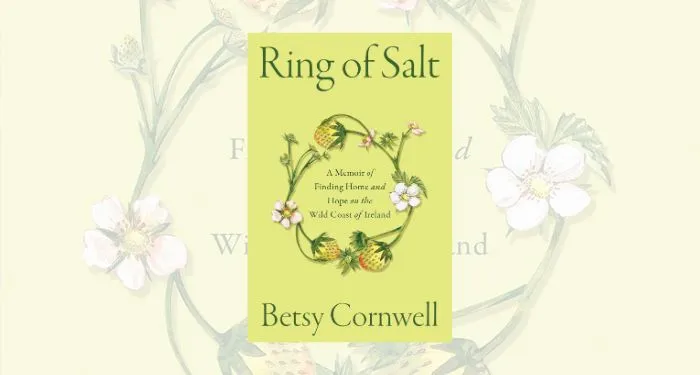In 2001 a literary weekly in Bucharest asked more than one hundred Romanian critics to name the best Romanian novel of the twentieth century. Their top choice was puzzling to nearly everyone: Craii de Curtea-Veche (Rakes of the Old Court, 1929) by Mateiu Caragiale. At first sight, the book—meandering, plotless, more a novella than a novel—is as unassuming as its author was peculiar. Caragiale was the out-of-wedlock son of the country’s foremost playwright, Ion Luca Caragiale. A man of many idiosyncrasies, he fancied himself of aristocratic descent and was consumed by an obsessive interest in heraldry, which left him little time for writing: it took him about two decades to finish the slender book, and he didn’t write much else.
Rakes is the account of its narrator’s encounters, conversations, and perambulations with three other characters, one more colorful than the next, in the underground world of late-nineteenth-century Bucharest. This was the time when modern, Europeanized Romania was taking shape after more than three centuries under Ottoman rule. (The country formally gained its independence in 1877, though the Westernization had started decades earlier.) The general feeling the book exudes, though, is not of rejuvenation or hope but of dissolution and decay. The city’s crumbling buildings and dilapidated quarters (such as the Old Princely Court of the title) seem the outward reflection of its inhabitants’ inner corruption. As the rakes explore Bucharest’s disreputable taverns and seedy brothels, they slowly drift away from ordinary standards of decency and public morality and into the labyrinths of transgression. As a character in the book observes, “Here we are at the gates of the Orient, where the moral scale is completely upside-down, where nothing is taken seriously.” The “Orient” stood largely for the Ottoman Empire and especially its heavy, corrupt, and often cruel administration, which was blamed for much that went wrong, politically and otherwise, in Romania.
What is fascinating is that while the narrator looks at everything with European eyes and judges what he sees by internalized Western standards (“Bucharest had remained faithful to its old norms of decrepitude; every step reminded us we were at the gates of the Orient”), he seems attracted and repulsed in equal measure, intimately attached to the place and disturbed by his attachment. His is a split identity—as must have been Caragiale’s—which the book reveals obliquely. Rakes not only describes the fractured Romanian identity but also performs it, linguistically and stylistically. In a paragraph or sometimes in a single sentence, lexical elements of widely different origin—Turkish, Arabic, Greek, Old Slavic—are conjured and fused masterfully with what is fundamentally a Romance language.
The result is at once puzzling and enchanting, with writing of startling beauty, much of which is lost even in the best translations. Aesthetically the split is made starker by the combination of dandyism, Western inspiration, and a distinctly Levantine atmosphere marked by slowness, moral fluidity, and a non-European savoir vivre. The book’s literary qualities, though, are not enough to account for the fact that it is considered the best Romanian novel of the twentieth century—not to mention that it’s barely a novel.
“What especially may define the Romanians over the long term,” writes Keith Hitchins (one of the best American historians of the region) on the first page of his Concise History of Romania (2014), “is their place between East and West.” But to be in between, neither/nor, never able to make up your mind as to which one you are exactly, is hardly a definition; it’s the impossibility of a definition. What made those critics value Rakes so highly must have been the deeper drama beneath the text’s glittering appearances: the drama of a country that cannot define itself. They recognized themselves, as have generations of Romanian readers since the book was written, in the split identity that it reenacts.
Finding themselves “at the gates of the Orient,” Romanians are Janus-headed, one face looking in the direction of Europe, or the West in general, and the other elsewhere: to the broader Balkan region, the Eastern Orthodox world revolving around Russia, or—more frequently and more strangely—a mythical land, unlike and above any other, which they are fortunate to inhabit. That land (centered vaguely around Dacia, the ancient kingdom that the Romans conquered, colonized, and soon abandoned) has fueled many a nationalistic craze in Romania over the past century, and the country’s politics today are incomprehensible if you don’t take it into account.
This split identity is found throughout Romanian society. Some social groups or classes may be perfectly synchronized with what goes on culturally, intellectually, or politically elsewhere in Europe. These people are fluent in at least one other European language and follow the European news as though it were domestic. Should they decide to relocate, they would have no problem being French in Paris, Sicilian in Palermo, or Catalan in Barcelona. Because they come from an “in-between” space, where borders are porous and identities uncertain, they can be pretty much anything they like. And they perceive their fluid identity as an asset. (There is a serious argument to be made that such people from the margins of Europe may make the best Europeans.)
At the same time there are social groups or classes that would rather stay put. For these people Europe is too large and too confusing a place, its open borders a source of puzzlement and its multiculturalism a scandal. Typically monolingual, they see Europe’s multilingualism as bewildering or even oppressive. What these people badly need is not new cultures to experiment with or new places to explore but one place to stick to—a homeland. They need their roots more than anything else; cut off from their native soil, they dry out. They see their fluid identity as troublesome, and their biggest fear is that in a globalized world, among the cosmopolites, they amount to nothing much.
The split can also be found within individuals: a person may be divided against himself, at different times or even at the same time. E.M. Cioran, one of the most original thinkers to have come from Romania in the twentieth century, never stopped complaining about the “misfortune of being Romanian,” which was the biggest drama of his life. Fresh out of college and in Berlin on a visiting studentship, he had his first brush with this “drama of insignificance.” “It’s awful to be Romanian,” he wrote to a friend. “You never win the trust of any woman, and serious people smile at you dismissively; when they see that you are smart, they think you are a cheat.”
We don’t know exactly what happened to Cioran in Berlin, but the measures he envisioned to rectify the situation are remarkable:
In Romania, only terror, brutality and an infinite anxiety could still lead to some change. All Romanians should be arrested and beaten to a pulp; only after such a beating could a superficial people make history.
A few years later, back home, Cioran wrote Romania’s Transfiguration (1936), in which he confessed that he loved his country “with a heavy hatred” and dreamed of a Romania with “the destiny of France and the population of China.” He was troubled, though, by its minor cultural status:
I’d give up half of my life if I could experience with equal intensity that which the most insignificant of Greeks, Romans or Frenchmen experienced even for a moment at the height of their history.
Eventually Cioran decided to leave Romania for France, but the land of his birth haunted him for the rest of his days. He performed his split identity in his work by writing first in Romanian and then equally exquisitely in French. In France he stopped speaking Romanian and used it only to curse, for which French, he had found, was ill-equipped. In one of his French books, De l’inconvénient d’être né (The Trouble With Being Born, 1973), he wrote, “I have spent my whole life wanting to be something else: Spanish, Russian, cannibal—anything, except what I was.”
Mateiu Caragiale was similarly split. He had a good Western education, was widely read in European literature, knew German (he studied in Berlin for a while), and was fluent in French, in which he kept his diary. In his practical life he could be as business-minded as a Calvinist of Geneva. At the same time, as Rakes testifies, he was irresistibly attracted to the East and its relaxed Levantine ways. When he fabricated his aristocratic genealogy, he presented himself as an “Oriental prince,” and he signed his letters “Mathieu Jean Caragiale, comte de Karabey,” as if he were French. He was neither French nor a count from the Orient. The Caragiales were of Ottoman (Greek, possibly Albanian) ancestry and of rather humble background: his grandfather had been a servant cook and took his name from his master, Ioan Gheorghe Caragea, the high-ranking Ottoman official sent to Bucharest by the sultan to rule on his behalf. Mateiu’s father relished wearing traditional Turkish dress.
The split passes not only through society and individuals but through pretty much everything Romanian—architecture, for example. Anyone who has spent even one day in Bucharest must have been struck by its hodgepodge of architectural styles: Neoclassical, Art Deco, Art Nouveau, Bauhaus, Cubist, Brutalist, Soviet, Middle Eastern, Neo-Byzantine, and Moorish, as well as something called “neo-Romanian” (with its distinctly Oriental arch), devised in the latter half of the nineteenth century by a Paris-educated architect, Ion Mincu. Right next to, say, a twenty-first-century steel-and-glass structure, you can easily stumble upon a splendid piece of Moorish architecture of Spanish import, followed incongruously by some Socialist-era curiosity of Soviet inspiration. What’s distinct about this architecture is the absence of any distinct style. It is unified only by its eclecticism, which gives the city its disconcerting physiognomy. As you walk down a Bucharest street, you cannot help thinking that what you see is the outward expression of a country that cannot define itself. Romanian identity is like one of those pieces of kintsugi pottery, in which different fragments of various sizes and shapes are improbably glued together, the whole thing exuding a sense of improvisation, luck, and, above all, extreme precariousness.
Since we often obsess over what we lack, there is nothing that Romanian scholars and theorists, historians and philosophers discuss more obsessively than “national identity.” There has hardly been a major intellectual, cultural, or political debate in the country over the past two hundred years, since it started to modernize, in which the topic hasn’t been front and center. There are libraries in Romania full of books trying to answer the question: What is it exactly to be Romanian? Obsessively asking this question and receiving no answer, however, must be an important part of what it means to be Romanian. Some of the most fascinating works of Romanian thought, literature, art, and music have been desperate attempts to address it: much of Cioran’s writing is incomprehensible without it; so is Mateiu Caragiale’s as well as his father’s, Lucian Blaga’s poetry and philosophy, large chunks of Mircea Eliade’s work, Constantin Brâncuşi’s sculpture, much Romanian music from Anton Pann to George Enescu, and many films of the Romanian New Wave. The day when Romanians answer the question in some definite way will be, I am afraid, a sad day for Romania. They will define themselves, and that will be the end of them.
Meanwhile, and more prosaically, this split identity may help explain what happened in Romania in May, when a nerdy Sorbonne-educated mathematician was elected the president of a country with one of the highest functional illiteracy rates in Europe.
The victory of the politically independent Nicuşor Dan over his far-right populist opponent, George Simion, has been seen, in Romania and elsewhere, as yet another “triumph of democracy.” It might be more accurate to say that democracy—always a fragile thing, especially in in-between places such as Romania—has survived yet again. On the face of it, Dan’s victory has all the ingredients of a feel-good story in which, in the Enlightenment tradition, science and democracy eventually defeat bigotry and obscurantism and everything ends well. Beneath the surface, as always, things are more complicated.
At a certain level, the election was a choice not so much between two rival political programs as between politics and antipolitics. Over the past thirty-five years, since the collapse of the Ceauşescu regime, politics have been utterly compromised in Romania, inextricably tied to corruption scandals, nepotism and cronyism, demagogy and unkept promises. Certainly some important things have also happened—the transition to democracy, accession to the EU and NATO, the creation of functional democratic institutions, significant foreign investment, exponential economic growth—none of which would have been possible without serious political commitment and the sustained work of many dedicated politicians and public officials. But the process has been so slow and uneven, and so marred by controversies, that many ordinary Romanians have a hard time discerning the benefits. What they see instead are interregional economic disparities, underfunded public services, brain drain, and rates of illiteracy, poverty, and social inequality that are among the highest in Europe.
As a result, millions of Romanians have left. It’s estimated that more than 15 percent of them now live in another EU country. Most of these migrants are low-skilled, poorly paid, and employed primarily as seasonal agricultural laborers, truck drivers, construction workers, cleaning personnel, and the like. They were failed by the Romanian state, which offered them neither a proper education nor employment opportunities, and they now find themselves in societies where they are often slighted because of their economic status, social awkwardness, and lack of education. Instead of taking the slight for what it is—standard classism—they typically misread it as anti-Romanian xenophobia, become angry and resentful, and seek solace in the nationalistic discourse reaching them from home via social media or the local Romanian church. (A significant part of the Romanian Orthodox clergy is ultraconservative and Euroskeptic, even those posted in EU countries.)
Meanwhile, in Romania things have been slow to change. With every new election season new promises are made, only to be forgotten soon after. The rotation of the parties in power over the past three and a half decades has only exacerbated the problems and deepened the public’s distrust of the political class. Around 2020 the social discontent was approaching a boiling point, and it was only a matter of time before there was an anarchic explosion.
Then two things happened in quick succession: the Covid-19 pandemic and Russia’s invasion of Ukraine. They are unrelated, but in Romania (as in other Eastern European countries) they became entangled. After the invasion the social media accounts that used to spew antilockdown and antivaccination messages promptly started distributing anti-Ukraine and pro-Russia propaganda. As Romania showed solidarity with Ukraine, the Kremlin launched a sustained campaign of disinformation and internal political destabilization, which involved, apart from large-scale social media manipulation, securing the public endorsement of Kremlin-aligned, anti-EU clergy of the Romanian Orthodox Church, as well as Russia-friendly Romanian politicians. Soon enough the Kremlin’s talking points became part of Romanian public discourse. Combined with growing social discontent, this promised a lively presidential election in 2024.
Things came to a head when Russia managed to have not one but potentially several Manchurian candidates in the race. One of them, Călin Georgescu, who came out of nowhere, won a plurality in the first round in November 2024. Offering a salad of classic conspiracy theories (the moon landing was fake), antiscience (this Ph.D. in soil science has doubts that the formula of water is really H₂O), and delirious nationalism (according to him, the Romanian language does not come from Latin; it is the other way around), all delivered with breathtaking brazenness, Georgescu has a strange charisma, particularly appealing to the less well-educated voters so carefully targeted by Kremlin propaganda. He even imitated, not very subtly, Vladimir Putin’s model of “providential man,” with short videos of him on horseback, doing judo, and cold-water swimming.
Soon after the first round, Putin’s court philosopher, Aleksandr Dugin, tweeted, “Romania will be part of Russia.” He had reasons to celebrate: this had been one of Russia’s most successful social media manipulation projects, as French and Romanian intelligence services soon realized. Even NATO became worried. The Russians, using shell companies to pay influencers for posting scripted pro-Georgescu messages, activated some 25,000 fake TikTok accounts to cheat the platform’s algorithms and make Georgescu appear to be a grassroots phenomenon, which thus he became, if a fake one. Before the second round could be held, the results of the first were annulled by Romania’s Constitutional Court, citing (apart from the social media manipulation) allegations of electoral law violations, and a rerun was scheduled for May 2025.
In November 2024 Simion came in fourth, but he showed potential as a replacement for Georgescu (who was not allowed to run again and is currently under investigation). Simion also had the right pro-Russia credentials: he is banned from entering both Ukraine and Moldova, where he is suspected of working for Russian intelligence. Even if this hasn’t been proved, his alignment with the Kremlin, whose talking points he repeats, is hard to miss.
Simion’s party, the Alliance for the Union of Romanians (AUR), was established in 2019 and made a splash a year later in the 2020 legislative elections, when it won some 10 percent of the seats in Parliament on an aggressively antilockdown, antivax, conspiracy-laden platform delivered largely through social media. That victory took even the AUR leaders by surprise, but it must have made them realize that voters will not remember the intricate points of a political program; they need only to be addressed in the right emotional key at the right time. Simion’s professional journey before he became a politician is not clear, but he does have a proven record as a soccer ultra, which essentially involved working excitable crowds—arousing them, shaping their emotions, toying with them, and directing their movements. This background is visible in the style of his—and his party’s—politics.
The party is as shifty as its name is flashy. (Aur means gold in Romanian.) Politics may be the art of manipulating appearances, but the AUR came up with something better: politics as pure glitter. The party is hard to pinpoint doctrinarily; the only -ism that may do it some justice is ultimate opportunism, which it pursues with fanatical determination. Having secured the endorsements of, as well as photo opportunities with, Europe’s far-right leaders, Simion set out to conquer the US far right. After Donald Trump’s reelection, the AUR went fully MAGA: Simion declared himself the Romanian Trump and claimed privileged access to the Trump administration. The AUR signed a $1.5 million contract with a US lobbying firm, which promised it interview opportunities with like-minded segments of American media. Whether that paid off is far from clear. While Simion was featured on a number of talk shows (Steve Bannon’s, for example), he was eventually denied photo opportunities with—let alone direct endorsements from—White House officials. In his relentless opportunism, Simion courted and flattered nearly anyone who might bring him some attention. Sometimes the political comedy was irresistible, as when, seizing the opportunity to ingratiate himself with a popular flat-earther influencer, he promised that if he became president, he would initiate a debate over whether the earth was round or flat.
Some call the AUR fascist, but fascists at least have ideas that they stand for. This does not seem to be true of Simion and his party; they will say anything that serves their purposes. Granted, they have borrowed from the language, imagery, and even organizational culture of Romania’s interwar fascists, the Iron Guard. But they have also openly praised Nicolae Ceauşescu’s Communist regime and claimed him as the precursor of their own version of nationalism. The AUR could be pro-capitalist in the morning and anticapitalist in the afternoon, depending on who was listening. On the campaign trail, it defended the right of property in some places, only to promise expropriations elsewhere. The houses of those who left the country to work abroad, it said, would be “given to the poor.” However, if you think that Simion had something against the Romanian economic migrants doing menial jobs in Western Europe, you are wrong. They were the special target of his affection. And the love was returned. Misreading their poor treatment as “anti-Romanian,” they easily fell for the AUR’s ruthless, glitter-filled propaganda, even as the party threatened to take away their homes.
Since its inception the AUR has heavily marketed itself as “anti-system”: it promised a new type of political life in a country that had lost faith in politics. There is considerable irony here. Rarely has a Romanian party proved more welcoming to political turncoats than the AUR. Political turncoating may be a national sport, but even by Romanian standards the AUR’s determination to poach and accommodate compromised politicians from other parties is remarkable. A serial political turncoat who has already been affiliated with four or five other parties can always count on Simion’s warm reception, especially if he brings some money with him. Simion and his party eventually left the impression that far from being a renewal of Romanian politics, they were the condensed expression of the worst parts of it.
And here’s where Nicuşor Dan came in. Rarely has a future president done more to steer clear of politics. As a high school math prodigy, he twice won the gold medal at the International Mathematical Olympiad. After studying math in Bucharest and Paris, he could have had a brilliant academic career at any major university in the world. Yet he decided to return to Bucharest, first to found a graduate school of mathematics and then to dedicate himself to civic projects such as the preservation of Bucharest’s heritage buildings. In 2020 he ran as an independent and was elected Bucharest’s mayor, then reelected four years later. When the political crisis of 2024 hit, the nerd decided to run for president.
As an outsider to party politics, Dan was the absolute underdog in the race. He lacked the national infrastructure and significant resources that established parties (including Simion’s) enjoy in Romania. His campaign was patchy at the best of times. It didn’t help that Dan is uncharismatic and visibly uncomfortable in official situations. Because of his outspoken civic activism, which often involved scuffles with the authorities (and police detention), he had few friends among the political class and even fewer endorsers. Eventually, however, he turned all this to his advantage: in a country where politics has been so utterly compromised, he was elected because of his antipolitical stance, which contrasted sharply with the establishment’s cynicism and the AUR’s blatant opportunism. Even Dan’s lack of charisma was a plus: “I vote for the nerd!” became a popular slogan.
What eventually secured Dan’s victory against Simion in the runoff on May 18 was the acute perception that nothing less than Romania’s “European future” was at stake. Simion’s anti-European stance touched a particularly sensitive nerve. When he started saying that he was running on behalf of Călin Georgescu, whom he would appoint prime minister and give free rein to run the country, the collective anxiety reached paroxysm. The memory of the Soviet embrace, which lasted for several long decades, was still fresh in the minds of many older voters, just as the prospect of being cut off from the EU was particularly painful for the younger, more cosmopolitan generations. Those segments of the Romanian diaspora, such as doctors, academics, and people working in IT, who were better integrated socially and professionally in their adopted countries and had stopped paying much attention to Romanian politics, suddenly realized that if they did not vote, they might no longer have a home country to go back to. Among people who are used to traveling freely and working within the EU and who identify as “European,” the thought of a possible Roexit provoked a visceral response. Theirs was a civic-mindedness of despair, born of a deep-seated identitarian anxiety against which even the Kremlin’s social media manipulation eventually proved ineffective. At least this time.



















 English (US) ·
English (US) ·